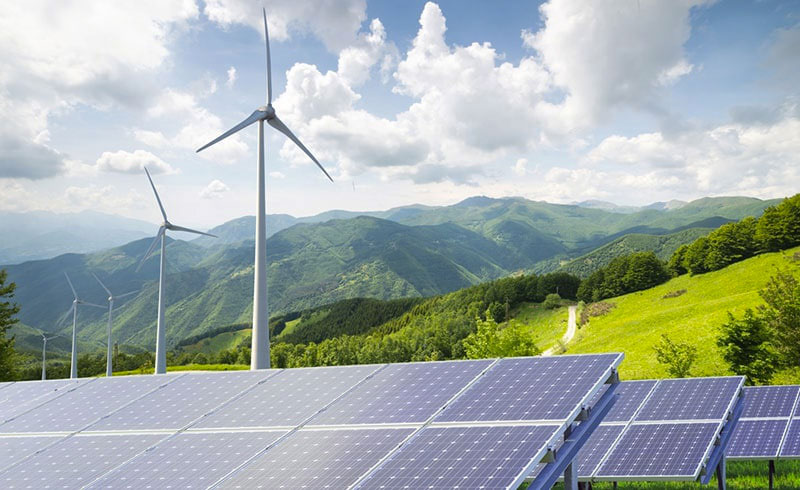Transition to Renewable Energy in Africa
Energy is the key to development in Africa. It is on this that the continent will build its industrialization. Reliable and sustainable energy is also essential to ensure people’s access to important basic services such as health care and drinking water. The continent’s unmatched potential for renewable energy gives Africa an undeniable advantage in transforming the energy sector. That said, electricity supply is lagging far behind on the continent. In 2019, two-thirds of newly commissioned electricity generation capacity worldwide came from renewable sources. Only 2% of these new additions came from Africa, even though the continent plans to double its energy demand by 2040.Meanwhile, Africa still invests in fossil fuels today. A change of course is necessary. By harnessing the potential of renewable energy, young economies and Africa’s dynamic growth can produce energy while meeting international climate goals.
Accelerating energy transitions in Africa
Technological advances, lower renewable energy costs,innovative approaches, Network effects and digitisation offer new possibilities and are an indisputable argument in favour of renewable energies. With its abundant indigenous resources, Africa is well positioned to capitalize on this potential. In this context, investments to address the serious economic consequences of the COVID-19 crisis in Africa must encourage the continent’s transition to a sustainable energy future. The new partnership for the transition to
renewable energy in Africa, as described, aims to support a green economic recovery.
Four action times should be considered:
- Promote access to energy
Nearly half of Africans (46%) still do not have access to electricity at home. Efforts to achieve universal access to affordable, reliable and sustainable energy services by 2030 must therefore be, first and foremost, energy transition strategies to effectively address poverty, to expand economic opportunities and promote equality. The speed with which modern renewable energy solutions can be deployed will depend on a balanced mix of conventional, mini-grid and off-grid solutions for unserved un underserved populations, and must also address the challenges of security of supply, economic viability and affordable access.
- Mitigate risks and promote private sector investment
The investments needed to meet Africa’s growing demand for renewable energy are far greater than the funds made available by public sources. By establishing stable and predictable enabling frameworks, identifying a viable pipeline of projects and providing targeted risk mitigation instruments, African
governments and their development partners can facilitate the private sector investments needed to close this gap.
- Strengthen and modernize the network
Network infrastructure in many African countries is inadequate, designed to accommodate conventional energy sources, leading to, among other problems, high electricity losses and poor quality of supply. This should be coupled with significant investments in the modernization and expansion of distribution and transport infrastructure, as well as in energy storage and other technological and market solutions that improve system flexibility, reduce greenhouse gas emissions, strengthen national and regional electricity systems, and reduce technical and commercial losses.
- Support systemic innovation
For Africa to harness the potential of renewable energy, a systems approach is needed. Innovative energy generation technologies, such as renewable energy-based electrical systems combining two or more technologies (for example, floating solar photovoltaics and pumped storage) and off-grid renewable energy systems, associated with innovative generic technologies (such as green hydrogen, the Internet of Things
and mini-renewable energy networks), as well as new business models, Improved regulatory frameworks and operating procedures for the system should be widely adopted.
Let us join forces and work together.

